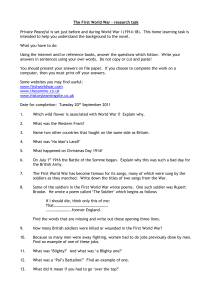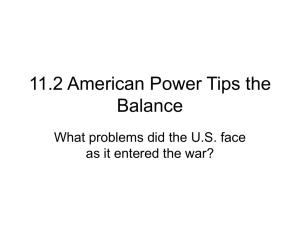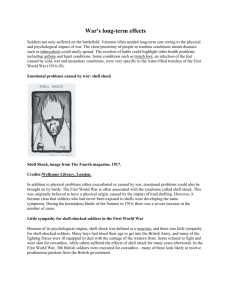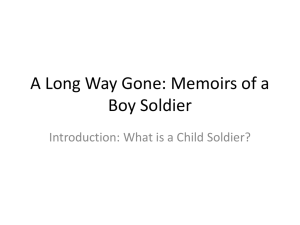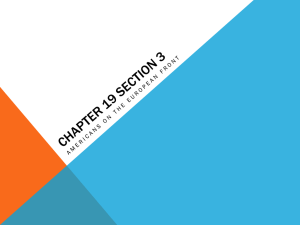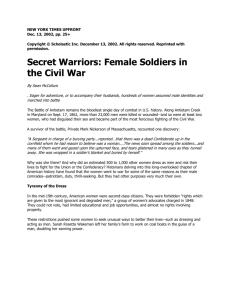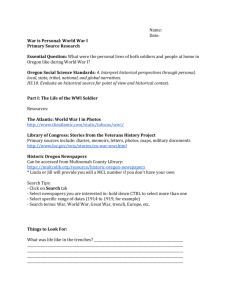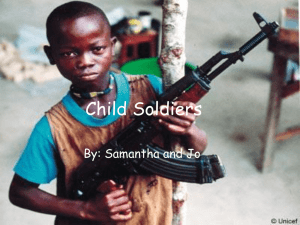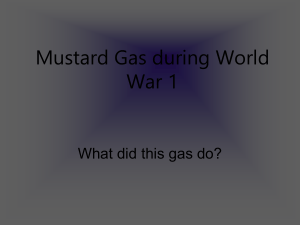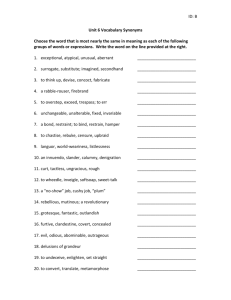WWI-SLANG / Microsoft Word Document
advertisement
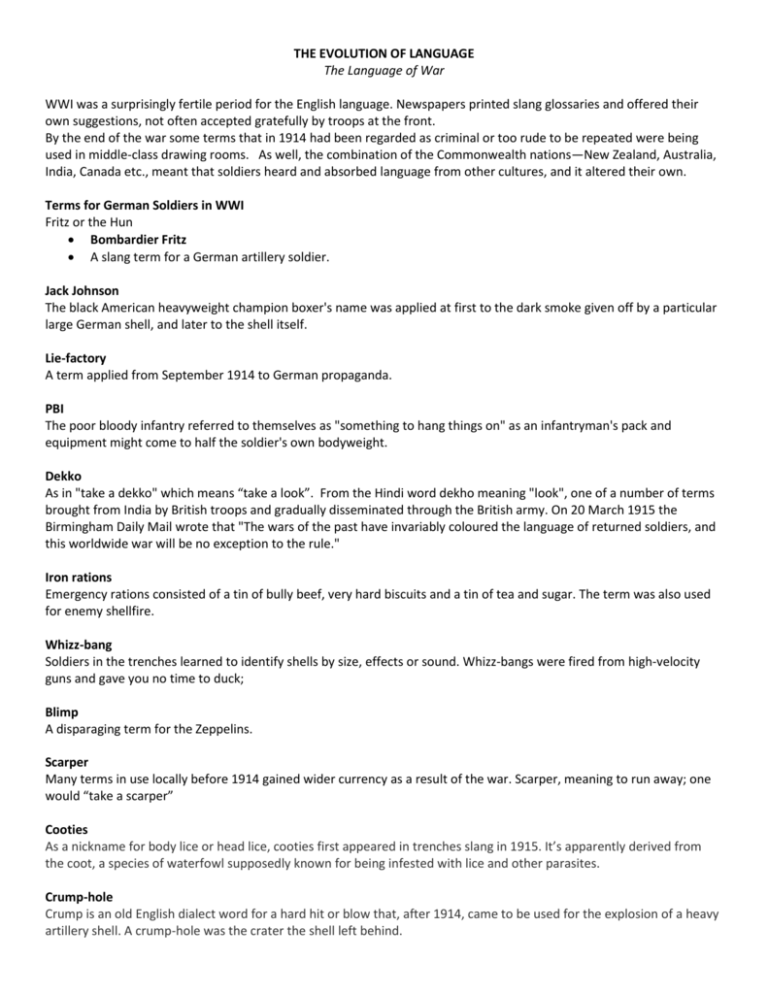
THE EVOLUTION OF LANGUAGE The Language of War WWI was a surprisingly fertile period for the English language. Newspapers printed slang glossaries and offered their own suggestions, not often accepted gratefully by troops at the front. By the end of the war some terms that in 1914 had been regarded as criminal or too rude to be repeated were being used in middle-class drawing rooms. As well, the combination of the Commonwealth nations—New Zealand, Australia, India, Canada etc., meant that soldiers heard and absorbed language from other cultures, and it altered their own. Terms for German Soldiers in WWI Fritz or the Hun Bombardier Fritz A slang term for a German artillery soldier. Jack Johnson The black American heavyweight champion boxer's name was applied at first to the dark smoke given off by a particular large German shell, and later to the shell itself. Lie-factory A term applied from September 1914 to German propaganda. PBI The poor bloody infantry referred to themselves as "something to hang things on" as an infantryman's pack and equipment might come to half the soldier's own bodyweight. Dekko As in "take a dekko" which means “take a look”. From the Hindi word dekho meaning "look", one of a number of terms brought from India by British troops and gradually disseminated through the British army. On 20 March 1915 the Birmingham Daily Mail wrote that "The wars of the past have invariably coloured the language of returned soldiers, and this worldwide war will be no exception to the rule." Iron rations Emergency rations consisted of a tin of bully beef, very hard biscuits and a tin of tea and sugar. The term was also used for enemy shellfire. Whizz-bang Soldiers in the trenches learned to identify shells by size, effects or sound. Whizz-bangs were fired from high-velocity guns and gave you no time to duck; Blimp A disparaging term for the Zeppelins. Scarper Many terms in use locally before 1914 gained wider currency as a result of the war. Scarper, meaning to run away; one would “take a scarper” Cooties As a nickname for body lice or head lice, cooties first appeared in trenches slang in 1915. It’s apparently derived from the coot, a species of waterfowl supposedly known for being infested with lice and other parasites. Crump-hole Crump is an old English dialect word for a hard hit or blow that, after 1914, came to be used for the explosion of a heavy artillery shell. A crump-hole was the crater the shell left behind. Cushy Cushy came from the Hindi word khush meaning "pleasure". There were cushy billets, cushy jobs, even cushy trenches, where shelling and attacks were sporadic. Blighty From the Urdu word bilayati meaning "foreign", applied to British troops in India, this came to mean British, and then Britain. One of the great hopes for a British soldier was "a blighty one", a wound that was disabling, but not disastrous, which would send the wounded man home for good. Daisy-Cutter Before the War, a daisy-cutter had been a cricket ball or baseball pitched low so that it practically skims along the surface of the ground. The name was eventually taken up by troops to describe an artillery shell fitted with an impact fuse, meaning that it exploded on impact with the ground rather than in the air thereby causing the greatest amount of damage. Terms for Death, Dying Dealing with such huge scale slaughter was difficult. As always, humans turn to humour to deal with tragedy and the men came up with a variety of creative ways to avoid that someone had been “killed”. For example, a man wasn’t “dead” he became a landowner, went home, drew his full issue, was topped off clicked it copped a packet Basket Case While it tends to be used fairly light-heartedly today (usually describing someone who constantly makes stupid mistakes, or who crumbles under pressure), the original basket case is an unexpectedly gruesome reminder of just how bloody the War became. In its original context, a basket case was a soldier who had been so badly injured that he had to be carried from the battlefield in a barrow or basket, usually with the implication that he had lost all four of his limbs. The bags A term commonly used for the sandbags that constituted the top of the front wall of a trench. Attacks began with "going over the bags" or "hopping over the bags". In the pink A phrase that had been around for centuries, this appears regularly in soldiers' letters and postcards; improbable given the living conditions at the front, but reassuring for those at home to hear their loved ones were in good health. Napoo English-speaking soldiers frequently found themselves serving alongside French-speaking soldiers in the First World War, often with little chance of one understanding the other. So when French soldiers would exclaim “il n’y a plus!" meaning “there’s no more!” the English soldiers quickly commandeered the expression and anglicized it as “napoo”, which they took to mean finished, dead, or completely destroyed. “It’s napoo” meaning “It’s all over”. Place Names Mangling French place-names was surely one of the most creative forms of language to come out of the conflict. Auchonvillers became Ocean Villas Mouquet Farm became Moo Cow Farm Ploegsteert became Plug Street Ypres became the famous Wipers

